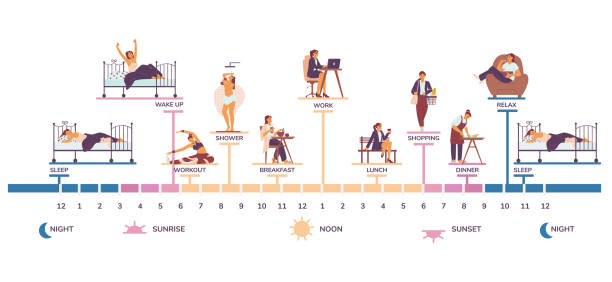Use a routine
Getting into a routine may help if you're overeating because you're not eating enough during the day. Structured eating and sleeping schedules can help you spread your food intake throughout the day, leaving you less hungry at night. When it comes to controlling your food intake and weight, getting enough sleep is critical. Lack of sleep and short sleep duration has been linked to higher calorie intake and poor-quality diets, according to a 2015 review of studies. Poor sleep can increase your risk of developing obesity and other chronic diseases over time.
However, as the review noted, while sleep plays an important role in eating patterns, other factors such as appetite-related hormones and time frames around food intake are also involved. Having set eating and sleeping times can help you separate the two activities, especially if you are prone to waking up in the middle of the night to eat.







